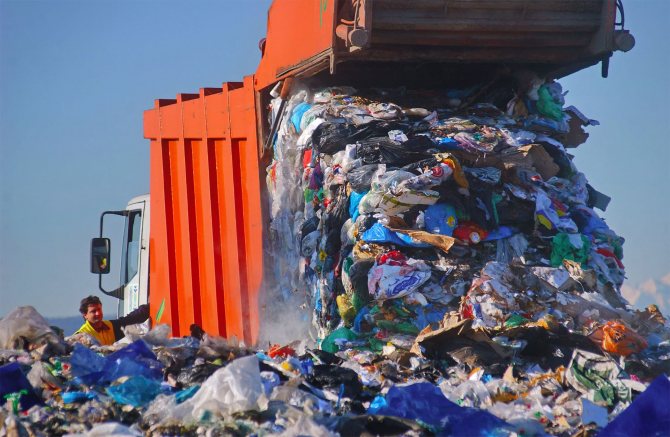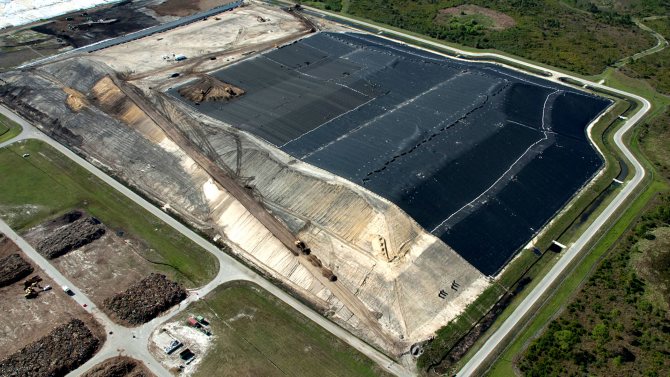At the end of 2021, many citizens and owners of non-residential premises received notifications of the need to formalize contractual relations with a regional operator providing services for the collection and removal of municipal solid waste (MSW). In the housing stock, this responsibility is assigned to management companies. The usual contract for the removal of municipal solid waste (MSW) was renamed to provide services for the management of MSW. The innovation took some utility workers by surprise, and at the beginning of 2021, some regions faced a garbage collapse. Who is responsible for the removal of household waste, what standards exist and what you need to know about discarded garbage, let’s sort it all out in order.
Types of MSW with codes according to FKKO
In accordance with current legislation, each type of waste is assigned an individual number. This allows us to significantly simplify the procedure for their shipment and disposal. Garbage must be removed according to the accepted code. The law establishes a general procedure that public utilities must follow. Otherwise, organizations are subject to large administrative fines.
The table below shows the codes of the most common types of waste and their interpretation.
| Encoding | Description |
| 7 31 110 02 21 5 | Bulky leftovers and unwanted products left behind by residents of apartment complexes. |
| 7 31 200 01 72 4 | Dust and debris swept from the streets. |
| 7 31 210 00 00 0 | Sediments that remain during winter cleaning of areas near houses. |
| 7 31 300 00 00 0 | Plant types of waste that remain during the processing process. They can be classified as street waste belonging to public utilities. |
| 7 33 100 00 00 0 | Remains from the work of various organizations and enterprises. Residual trash that appears during the production process and is considered defective. |
| 7 31 200 02 72 5 | Garbage remaining during the processing of parks, squares and other recreational areas for the urban population. |
| 7 37 100 02 72 5 | Waste that remains after cleaning public and entertainment premises. |
| 7 37 000 00 00 0 | Cleaning elements for educational, cultural and art institutions. |
| 7 35 100 02 72 5 | Residues that appear during the processing of areas that belong to retail establishments, markets and various sites. |
| 7 34 951 11 72 4 | Baggage waste and other unnecessary substances during the transportation of products. Overdue. |
| 7 34 205 21 72 4 | Residues related to waste products of ship occupants. |
Everyone knows in general terms what municipal solid waste is. These include various human waste products, garbage from residential and public premises, etc.
The current legislative norms provide a complete list of MSW, which can be consulted at any time. It provides the encoding and a complete description of the garbage. This data is needed for easier recognition and classification during the loading, transportation and disposal of discarded items.
Legal basis
The regulations that regulate issues related to the removal of solid waste are:
- Federal Law of June 24, 1998 No. 89-FZ “On Industrial and Consumption Waste”.
- Federal Law of January 10, 2002 No. 7-FZ “On Environmental Protection”.
- Federal Law of March 30, 1999 No. 52-FZ “On the sanitary and epidemiological welfare of the population.”
- Decree of the Government of the Russian Federation of May 6, 2011 No. 354 “On the provision of utility services to owners and users of premises in apartment buildings and residential buildings.”
- Decree of the Government of the Russian Federation of September 5, 2021 No. 881 “On the competitive selection of regional operators for the management of municipal solid waste by authorized executive authorities of the constituent entities of the Russian Federation.”
- Decree of the Government of the Russian Federation of February 10, 1997 No. 155 “On approval of the Rules for the provision of services for the removal of liquid household waste.”
These regulations regulate a number of important issues. They define solid waste, regulate the procedure for their collection, transportation, disposal and disposal, and also establish a procedure for selecting a service provider of this nature.
Changes in legislation
There have been a number of changes in legislation regarding services related to the removal of solid waste. First of all, the collection and removal of liquid and household waste was separated. Such a service is provided in accordance with the new procedure established by current legislation. The removal of liquid waste is regulated by a separate regulation.
The abbreviation MSW was replaced by MSW - municipal solid waste. Rules for determining the regional operator that deals with issues of this nature were also put into effect. Expenses associated with the removal of MSW are classified as utility services. Electronic auctions have been introduced, based on the results of which prices for waste collection and transportation are determined.
Hazard classes
There is waste that is completely harmless to nature and health. Others are considered dangerous. They release toxic substances that poison living organisms and plants. There are five hazard classes, information about them is given in the table. To understand the features of each, you need to study the information below.
| Class number | Characteristic |
| 1 | Nature suffers the most from these materials. It is considered the most dangerous type of waste, the breakdown products of which retain their toxicity for a long time. An example is mercury - thermometers, lamps. |
| 2 | Have a negative impact on the environment. The recovery period can be more than a hundred years. It will take a long time to eliminate the consequences. This usually includes diesel or other types of engines, various fuels, etc. |
| 3 | These materials are considered hazardous to the environment, but the recovery period usually does not exceed a decade. Such substances do not cause significant harm to the natural environment. This includes various construction waste - concrete, cement, metal parts. With proper processing, it is possible to neutralize the negative effect and secondary production. |
| 4 | Does not cause significant harm. These are usually non-toxic substances whose decay period does not exceed three years. For example, paper, plastic, wooden products. |
| 5 | These materials are completely safe, easily split, and do not harm human health. This includes ceramic dishes, food waste and the like. |
The class is determined depending on the hazard established as a result of expert assessment. This data is entered into product passports. To find out the hazard class of a certain type of product, you need to study the current list and codes according to the Federal Waste Classification Catalog - FKKO. In this case, you should use the latest edition, since changes and additions are periodically made to it.
Law on solid household waste and SanPiN requirements
In accordance with sanitary standards:
- Different types of waste must be stored in specialized containers. For example, in metal tanks that block the spread of toxic substances into the environment.
- The storage area must be cleaned regularly. Sanitation must be carried out at least once every ten days.
- If a residential building has more than five floors, a special garbage disposal should be installed in it.
- Discarded materials cannot be stored in bins for more than three days in winter and one day in summer.
- Waste collection sites should be located away from populated areas.
- Companies that do not have the appropriate permit are prohibited from removing waste.
- A special control organization is responsible for the correct handling of discarded waste.
By law, the disposal company must make arrangements with a regional representative for the removal and disposal of hazardous waste.
Expert opinion
Alexandra Yu.
When thinking about environmental issues, it is important not only to sort, but also to reduce consumption.
The organization must have a license for the relevant activities. To do this, she needs to go through the registration procedure. The period for consideration of the application is at least two months. If the decision is positive, the company is assigned a regional code and a permit is issued.
Transport that transports waste must also meet certain criteria. The following rules apply:
- special garbage trucks are used;
- organic products are transported in separate compartments equipped with bags to collect accumulated moisture;
- raw materials for animal feeding are transported in reusable food containers;
- waste collection is carried out using special equipment, after which it is placed in closed containers for transportation;
- if there is a possibility of getting wet, additional protection against water is provided;
- It is not allowed to use a vehicle of this type for other than its intended purpose, otherwise the violator will be held administratively liable;
- Vacuum containers are used for liquid and gaseous waste, and plastic containers for solid waste.
Mandatory compliance with the rules listed above is required. This guarantees quality disposal.
Problem with solid waste disposal

The expectations of the population are directly related to rising costs. They expected not only separate collection, but also the absence of problems with the removal of any garbage. However, regional operators, who are contractually obligated to remove and dispose of waste, refuse to deal with bulky waste (BW) or construction waste without additional payment.
Therefore, if you cannot place your broken washing machine or refrigerator in the trash bin, they remain in the dumpster area. Soon, utility service representatives will knock on the door, demanding that the owner of non-working equipment or old furniture take immediate action. The way out of this situation is an additional agreement with the regional operator. You need to act similarly if construction waste accumulates during apartment renovations.
In reality, furniture, broken equipment, and construction waste are all things that belong to solid waste. But the regional solid waste operator separates ordinary waste and civil waste in the agreement. The reason is that traditional garbage trucks are not designed to handle such waste and their devices may malfunction.
Accounting and processing of solid waste
Accounting and processing of solid waste is strictly regulated. Below are their main features.
Solid waste passport
To carry out waste disposal activities, you need to have a special passport. It keeps records of all processed products up to the fourth hazard class. It is necessary to familiarize yourself with the rules for filling out papers on special resources.
Logbook
This document is mandatory. It contains the following data:
- types of processed products;
- sale and use of municipal solid waste;
- write-off
This document is filled out by the official. Activity reports are regularly provided to regulatory authorities.
Equipment for work
The following devices are used:
- line for sorting products;
- compressors to reduce waste volumes;
- large compactors;
- shredders and other grinding equipment;
- containers for storing recycled trash.
Solid waste norm per person
It is calculated depending on climatic conditions and other factors. The approximate norm for one person is up to 300 kg per year.
How are landfills arranged?
Each trash can must have special equipment. When the area allocated for it is completely filled, the following actions are performed:
- filtration and disposal;
- collection of filtered substances;
- production of protective screens;
- carrying out soil restoration activities.
The optimal solution for solid waste removal

Local accumulations of garbage and giant unauthorized landfills are a problem in many cities and towns in our country. Since 2019, modern methods of waste disposal related to separate waste collection have been introduced.
Many cities have been practicing separate collection and recycling of plastic bottles for several years. This became a kind of impetus for accustoming the population to sorting their waste. Recycling - reprocessing of raw materials has become the main solution for recycling waste. Previous methods, such as burying, burning and simply storing waste at a landfill, are fading into the background.
Only a responsible approach from the civilian population and local authorities will help cope with the problem of spontaneous landfills. It is important to motivate citizens to selectively collect waste. This will simplify its further processing and become a starting point in solving the problem of environmental pollution.
Regional MSW removal operators are called upon to create, prepare and equip a site for separate waste collection, and the task of citizens is to accustom themselves to the new requirements. The optimal way to authorize waste removal is to draw up an agreement with the entity responsible for waste management. The task of the MSW owner will be reduced to placing the waste in a specially designated place, in the appropriate container.
Removal and processing of solid waste (2 videos)
Removal and payment for solid waste
Transportation of waste is carried out using the following transport:
- dump trucks transporting large items;
- special machines that are equipped with additional systems and containers for storing discarded waste.
In accordance with generally accepted rules, the cost of garbage removal is included in the payment for housing and communal services. The price is calculated depending on the number of people living in the apartment and the expected volume of waste.
What is solid waste

The concept of solid household waste (MSW) refers to garbage generated in the process of human activity. There are biological (food and plant) and synthetic (textiles, wood, paper, etc.) waste. The usual term - solid waste - has become colloquial and has not been used in official documents since the beginning of 2021. It was replaced by the concept of MSW - municipal solid waste.
What is the difference between solid waste and solid waste?

MSW refers to garbage generated in places of residence during the life of the civilian population and used goods that have lost their consumer properties. Also, waste with a similar composition, but already generated as a result of business processes of legal entities and individual entrepreneurs, was equated to MSW. The concept was introduced and enshrined in law by Federal Law No. 458 on December 29, 2014. Before the introduction of this clarification, it was necessary to pay for waste disposal based on the status of the object (residential/non-residential) and the number of registered residents or officially employed employees (for enterprises). The innovation specifies the consumer: an individual, a legal entity or an individual entrepreneur. The tariff for the provision of MSW management services is determined depending on the status of the consumer and the standards for the accumulation of MSW. Thus, residents of apartment buildings or those with private households pay less than owners of office premises and enterprises.
MSW disposal
This procedure can be carried out using several methods. Details about them are given in the table below.
| Name | Characteristic |
| Disposal of municipal solid waste | One of the simplest and most accessible methods. Features low costs. Characterized by a high level of harmful impact on the environment. May cause diseases of the soil and population. This method takes second place, inferior to more modern and safer ones. |
| Burning | One of the popular methods. The process produces combustion products that can be used to replenish energy resources. At the same time, there is a high risk of negative emissions into the environment. |
| Recycling | It implies maximum consumption and minimization of harmful effects. Reduces the number of landfills used. Differs in expensive production. |
| Composting | Food waste is processed into compost, which can be used as fertilizer. |
Problems in Russia
In the Russian Federation, more than 95% of waste is sent to landfills. The remaining 5% can be processed in factories. If the situation does not change, the country will face a garbage collapse. The existing landfills do not have time to process the waste that arrives there. Arrangement of new areas is a significant problem.
Our country has enormous potential for recycling waste and producing secondary goods from garbage. The main thing is to establish the appropriate industry and provide financial support for such enterprises. This is essential for improving the environment.
Solid waste management in Russia

Consumers see the tip of the iceberg - a garbage truck arrives and loads the contents of the container. What happens next is of little concern to the population. But the problem exists because in Russia up to 95% of garbage ends up in solid waste landfills. The rest goes to factories for processing into materials. This significantly reduces the cost of obtaining metals and other useful substances.
In European countries, only 40% of solid waste ends up in landfills, another 40% is used to obtain materials, and 20% is used for energy. For reference!
It is a misconception that landfills are some kind of big pile of garbage that rots naturally. They mean a complex of structures erected according to design documentation. It is subject to a number of requirements, including waterproofing and fencing (a fence with a height of 1.8 m around the entire perimeter).
The problem is that there are not enough solid waste landfills and even those that exist are reaching the end of their service life. They do not use the entire allocated area, but in parts, the service life of which does not exceed 7 years. The lack of landfills has led to the accumulation of up to 40 billion tons of unrecycled waste.
Is there a way out?
Using the example of European countries, we can conclude that Russia has enormous potential in the field of waste management. Essentially, trillions of rubles are being buried. The situation can be corrected by introducing processing production.
A typical similar enterprise is equipped with the following equipment: shredder, hydraulic press, sorting line. The rest depends on the specialization. A small complex will cost several million rubles, large plants with complex technological processes will require serious investments.


